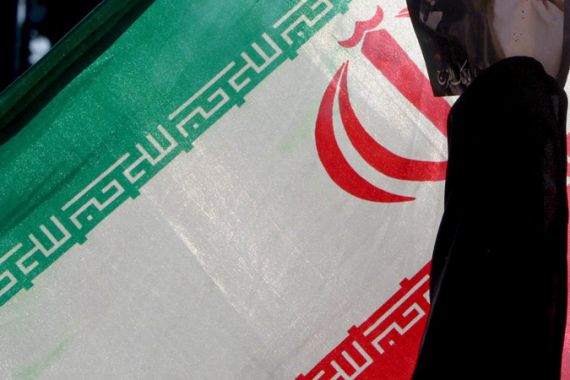Iran frees two German journalists
Foreign minister brings back pair detained for interviewing son of woman sentenced to death by stoning.

 |
| Sajjad Qaderzadeh, seen here with his mother, Sakineh Mohammadi Ashtiani, has plead for her life to be spared [AFP] |
Iran has freed two German journalists arrested four months ago in connection with a highly publicised stoning case.
Germany’s foreign minister, Guido Westerwelle, went to Tehran on Saturday to bring the reporters home in a rare high-level visit by a Western government representative.
An Iranian court threw out the journalists’ 20-month prison sentence on Saturday, commuting it to a fine of $50,000 each and clearing the way for their release, state media reported.
Westerwelle in Tehran thanked his Iranian counterpart, Ali Akbar Salehi, for his “commitment to the relations between our countries”.
The Germans – a reporter and a photographer for the Berlin-based mass-circulation tabloid Bild am Sonntag – interviewed Sajjad Qaderzadeh, the son of Sakineh Mohammadi Ashtiani, an Iranian woman sentenced to death by stoning for adultery, Sakineh Mohammadi Ashtiani, whose case has generated widespread international outrage.
Marcus Hellwig and Jens Koch were detained in October after interviewing Qaderzadeh. Throughout their detention, Iranian officials accused them of a range of serious crimes from spying to having links to groups of Iranian exiles.
Ultimately, they were found guilty of committing acts against Iran’s national security. Officials have also claimed they admitted to violating Iranian laws barring those entering the country on tourist visas from working as journalists.
A ‘132-day-long nightmare’
Westerwelle joined the pair in Tehran and took them back home to Germany on his government jet. They arrived safely in Berlin on Sunday morning, the foreign ministry said.
“We are all jubilant today,” Michael Backhaus, the deputy editor of Bild am Sonntag , said.
“This is a 132-day-long nightmare that is now ending for the newspaper’s staff and all relatives”.
Backhaus declined to discuss details of how the journalists’ release had been achieved. He said diplomatic efforts were made continuously behind the scenes.
Ashtiani was convicted of adultery in 2006 after the murder of her husband and sentenced to death by stoning. In the face of international outrage, the sentence has been suspended and is under review by the supreme court.
She was later convicted of being an accessory to her husband’s murder and sentenced to 10 years in prison.
In the wake of the international outcry over the verdict, the Iranian government has been at pains to show that Ashtiani is guilty, airing several interviews with her repeatedly confessing her crimes.